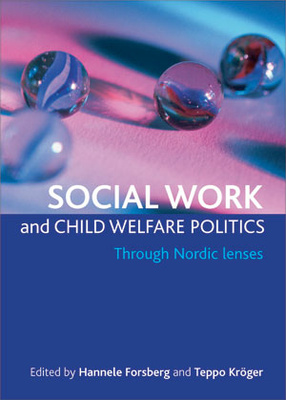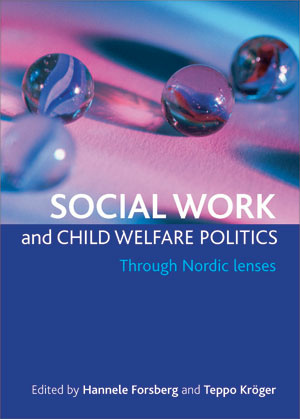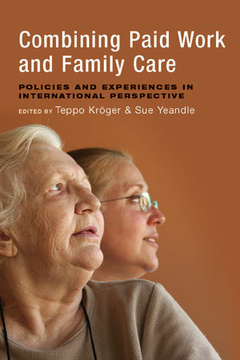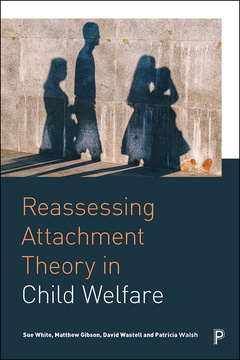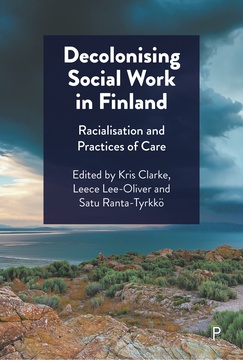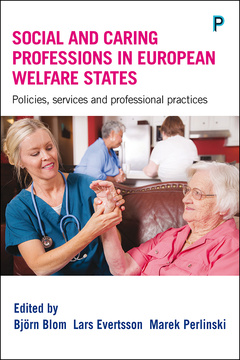Social work and child welfare politics
Through Nordic lenses
Edited by Hannele Forsberg and Teppo Kröger
Published
Mar 15, 2011Page count
216 pagesISBN
978-1847429001Dimensions
240 x 172 mmImprint
Policy PressPublished
Nov 4, 2009Page count
216 pagesISBN
978-1847424068Dimensions
240 x 172 mmImprint
Policy PressChildren and families are at the heart of social work all over the world, but, until now Nordic perspectives have been rare in the body of English-language child welfare literature. Is there something that makes child welfare ideas and practices that are in use in the Nordic countries characteristically 'Nordic'? If so, what kinds of challenges do the current globalization trends pose for Nordic child welfare practices, especially for social work with children and families?
Covering a broad range of child welfare issues, this edited collection provides examples of Nordic approaches to child welfare, looking at differences between Nordic states as well as the similarities. It considers, and critically examines, the particular features of the Nordic welfare model - including universal social care services that are available to all citizens and family policies that promote equality and individuality - as a resource for social work with children and families. Drawing on contemporary research and debates from different Nordic countries, the book examines how social work and child welfare politics are produced and challenged as both global and local ideas and practices.
"Social work and child welfare politics" is aimed at academics and researchers in social work, childhood studies, children's policy and social policy, as well as social work practitioners, policy makers and service providers, all over the world who are interested in Nordic experiences of providing care and welfare for families with children.
"This book makes an important contribution to our knowledge of children in the Nordic countries. It discusses how the Nordic Welfare State with its strong emphasis on equity, relates to the well-being of children." Irene Levin, Professor of Social Work, Oslo University College
"This book is a welcome addition to the international policy literature. Despite considerable interest in the Nordic welfare model, it is among the first to examine the distinguishing features of Nordic approaches to child welfare and provides a timely analysis of Nordic child welfare services in transition. I recommend it to child welfare policy makers, researchers and practitioners." Professor Karen Healy, School of Social Work and Human Services, The University of Queensland.
Hannele Forsberg is Professor of Social Work in the Department of Social Work Research at the University of Tampere, Finland. Her main research fields are family and childhood research and social work practices. Her ongoing research project concerns contested family practices and moral reasoning.
Teppo Kröger is Academy Research Fellow, working at the University of Jyväskylä, Finland. Formerly a social worker and lecturer in social work, his main research interests focus on comparative research on social care, including child care, care for disabled people and care for older people.
Introduction ~ Hannele Forsberg and Teppo Kröger; Nordic family policies: constructing contexts for social work with families ~ Guðný Björk Eydal and Teppo Kröger; A Nordic model in child welfare? ~ Helena Blomberg, Clary Corander, Christian Kroll, Anna Meeuwisse, Roberto Scaramuzzino and Hans Swärd; From welfare to illfare: public concern for Finnish childhood ~ Hannele Forsberg and Aino Ritala-Koskinen; Supporting families: the role of family work in child welfare ~ Marjo Kuronen and Pia Lahtinen; Family focused social work: professional challenges of the 21st century ~ Sigrún Júlíusdóttir; In the best interest of the child? Contradictions and tensions in social work ~ Reidun Follesø and Kate Mevik; Children in families receiving financial welfare assistance: visible or invisible? ~ Inger Marii Tronvoll; Listening to children's experiences of being participant witnesses to domestic violence ~ Margareta Hydén; Now you see them - now you don't: institutions in child protection policy ~ Tuija Eronen, Riitta Laakso and Tarja Pösö; Epilogue: on developing empowering child welfare systems and the welfare research needed to create them ~ Keith Pringle.







